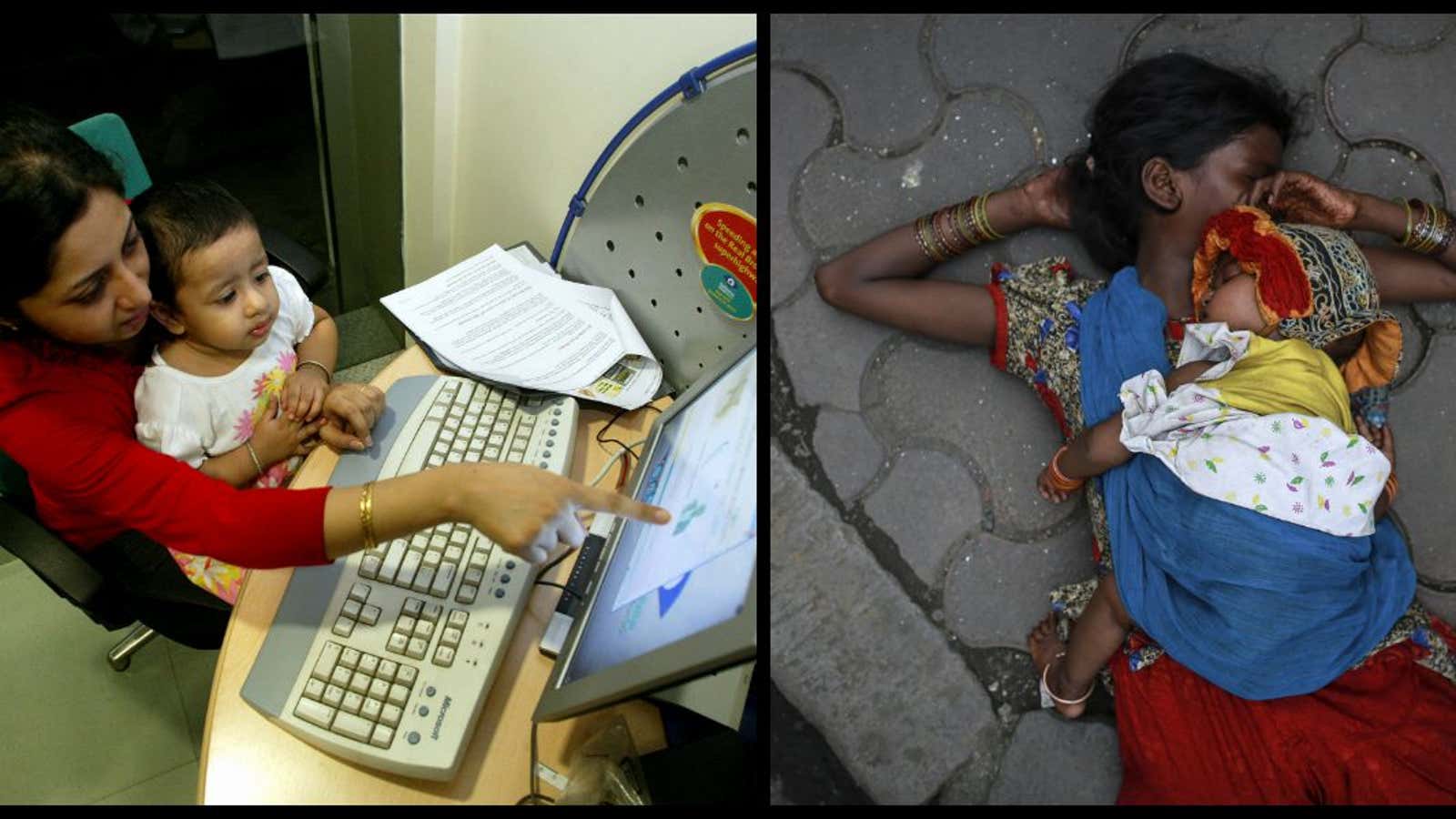Cut through the hype of Mother’s Day, and face the truth: Be it decrepit shanty towns or glass-fronted corner offices, it isn’t easy being a mother in urban India.
In India’s urban slums, for instance, mothers are worse off than those in inner-city areas of most other countries, according to a study by Save The Children.
On the non-profit’s mothers’ index—which takes into account a mother’s health, education, economic status, and participation in politics, along with the health of her children—India ranked 140 out of a total of 179 countries surveyed.
That’s 10 places behind Bangladesh, which ranked 130, and nine ahead of Pakistan, at 149. China stood 61st and the US was ranked 33.
“Diets are poor. Diseases are rife. Pregnancies occur too early in life and too often. Good health care, especially preventive care, is rare,” Margaret Chan, director-general at the World Health Organization, wrote, describing the challenges of being a mother in India’s urban slums.
“In most cases, the publicly funded health services that reach the urban poor are under-staffed and ill-equipped. Forced reliance on pricey and unregulated care by private, and sometimes public, practitioners deepens poverty even further,” she noted.
Here is a breakup of how India performed on the key indicators:
In urban slums, death rates of mothers and children exceed even rural areas, according to the report. ”Poverty, and the social exclusion that goes with it, leave the urban poor trapped in overcrowded, makeshift or decrepit housing, with few opportunities to stay clean or safe on a daily basis,” Chan explained.
And growing inequality in cities, as a result of rapid urbanisation, is making things worse. In urban India, the Gini coefficient—a measure of inequality, in which zero is perfect equality and 1 is perfect inequality—has increased from 0.27 in the late seventies to 0.38 in 2009-10.
The result is that the poorest urban children in India are three to five times more likely to die before they turn five, compared to their richest counterparts—and over half of urban children in India are stunted.
Executive exits
Mothers on the other end of the economic spectrum face an entirely different challenge.
A study by the Associated Chambers of Commerce of India (Assocham) has found that women are increasingly giving up their careers to become full-time mothers and raise children.
One-fourth of the women surveyed, all of whom recently became mothers, said they quit their job to raise kids. This is especially true for nuclear families, where “women have a tough time balancing work and childcare, especially if they do not get help from others,” Assocham secretary-general DS Rawat said in a statement.
The survey was conducted in 10 Indian cities—Ahmedabad, Bangalore, Chennai, Delhi, Hyderabad, Indore, Jaipur, Kolkata, Lucknow and Mumbai—during March and April, with some 400 women between the ages of 25 and 30 years.
Across the world, women find it hard to make it to the top, but in India, it’s particularly hard. For instance, in January this year, Indian women held only 9.5% of all board seats at 200 leading Indian companies listed on the Bombay Stock Exchange, one of the lowest percentage share of women directors globally.
That forced the country’s market regulator to make it mandatory for listed companies (pdf) to have at least one woman director on their boards by April 1, 2015. Almost 13% of companies failed to comply, and many companies simply elevated family members to the position of directors.
